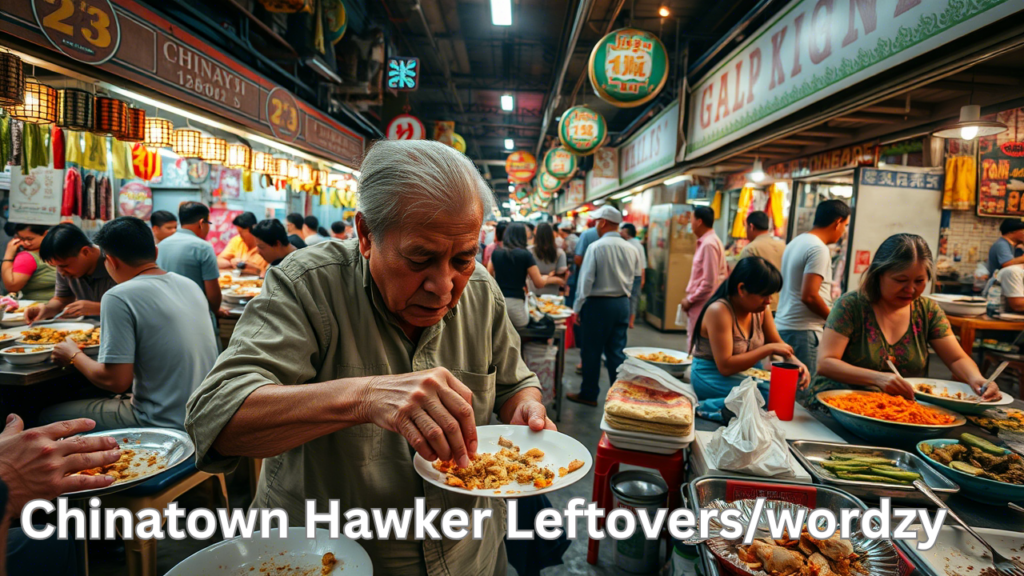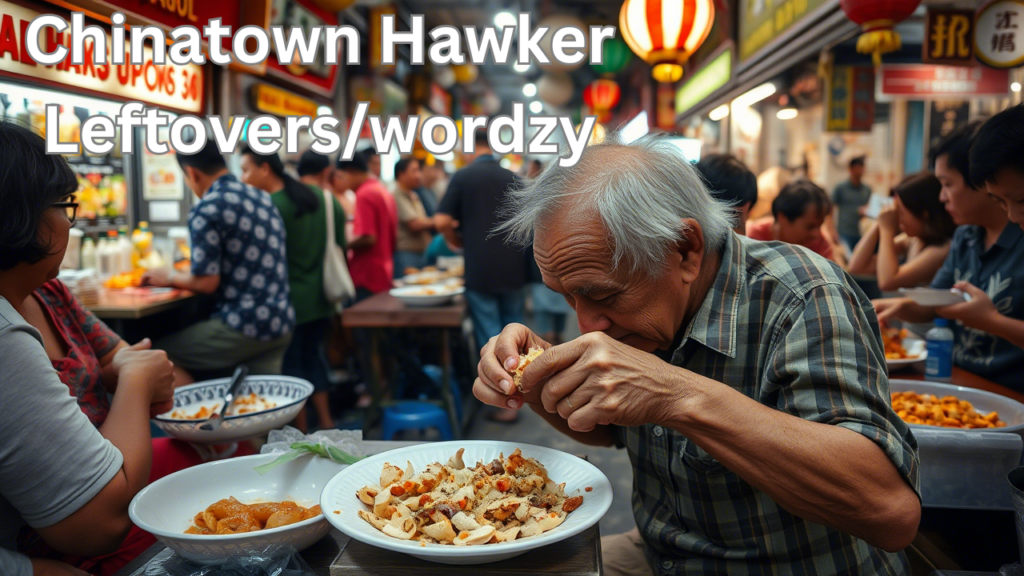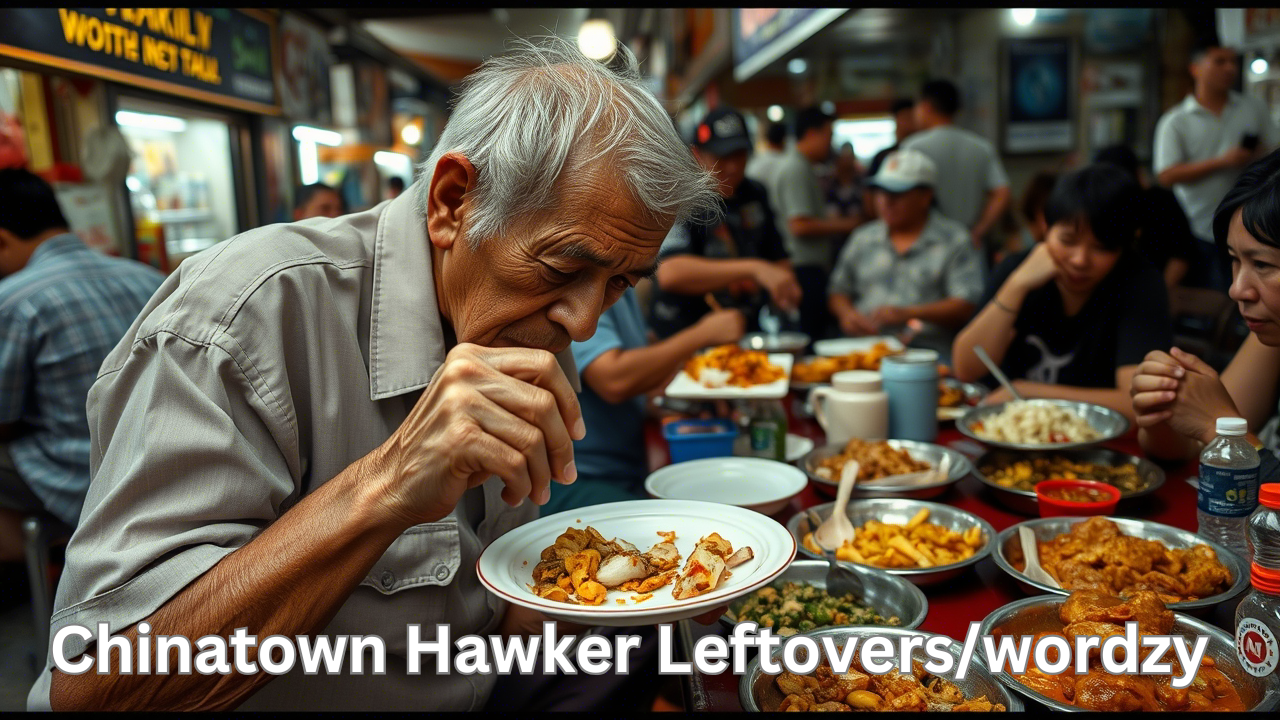What Is Chinatown Hawker Leftovers Consumption?
Chinatown hawker leftovers consumption refers to the act of individuals consuming food left behind by others at hawker centers, particularly in Chinatown, Singapore. This practice has garnered widespread attention, sparking debates about food waste, poverty, and public health concerns.
Table of Biography for “Chinatown Hawker Leftovers Consumption”
| Attribute | Details |
|---|---|
| Keyword | Chinatown Hawker Leftovers Consumption |
| Definition | The act of consuming leftover food from hawker centers in Chinatown, particularly in Singapore. |
| Main Causes | Poverty, food waste reduction, cultural habits. |
| Health Risks | Food contamination, bacterial infections, unknown hygiene conditions. |
| Public Concerns | Social stigma, hygiene issues, ethical debates. |
| Media Attention | Highlighted in news reports, sparking debates on food waste and poverty. |
| Potential Solutions | Food redistribution programs, government aid, community awareness. |
| Environmental Impact | Reducing food waste but increasing health concerns. |
| Current Discussions | Whether it should be discouraged or managed through structured food-sharing initiatives. |
Why Do People Engage in This Practice?
There are various reasons why people partake in Chinatown hawker leftovers consumption. While some assume it stems from economic hardship, others argue it is a conscious effort to reduce food waste.
- Economic Hardship: Some individuals, particularly elderly people with limited financial means, resort to consuming leftover food as a means of survival.
- Environmental Concerns: Others claim they engage in this practice to prevent food waste and minimize environmental impact.

- Cultural and Social Factors: Some individuals, having grown up in frugal environments, may view leftover consumption as a way to avoid unnecessary waste rather than an act of desperation.
The Health Risks of Eating Leftover Hawker Food
Despite the intentions behind Chinatown hawker leftovers consumption, health experts strongly advise against it due to serious risks, including:
- Food Contamination: Leftover food could have been exposed to bacteria, increasing the risk of food poisoning.
- Unknown Handling Practices: There is no way to know if the previous diner had an illness or if the food was contaminated before being abandoned.
- Degradation of Food Quality: Singapore’s humid climate accelerates food spoilage, making leftovers a potential health hazard.
Media Spotlight on the Issue
Recent reports have shed light on the increasing prevalence of Chinatown hawker leftovers consumption, particularly among the elderly. Media coverage has prompted discussions on several important topics:
- The Growing Issue of Food Waste: Singapore generates thousands of tons of food waste yearly. The practice of consuming leftovers highlights how much edible food goes to waste.
- Poverty and Social Welfare Concerns: Observing elderly individuals engaging in this behavior has raised questions about the adequacy of social welfare programs.
- Public Perception and Stigma: While some sympathize with those engaging in the practice, others view it as unsanitary and unsafe.
Efforts to Address the Issue
Several initiatives are being explored to tackle both food waste and social welfare concerns:
- Food Redistribution Programs: Non-profit organizations are working to collect unsold food from hawker stalls and distribute it to those in need.
- Community Support and Awareness: More efforts are being made to raise awareness about the dangers of eating leftovers while encouraging sustainable food practices.
- Government and Policy Changes: Policymakers are discussing ways to improve financial assistance programs for vulnerable populations to reduce the need for such practices.
Is There a Sustainable Alternative?
A more structured approach to food redistribution may help alleviate the concerns surrounding Chinatown hawker leftovers consumption. Some possible solutions include:
- Encouraging food stalls to donate excess food to shelters rather than letting it go to waste.
- Implementing policies that support food-sharing programs.
- Educating the public on food safety to prevent unnecessary health risks.

Final Reflections
Chinatown hawker leftovers consumption is a complex issue that intertwines social, economic, and environmental factors. While some individuals engage in this practice due to financial struggles, others do so to combat food waste. However, the potential health risks associated with consuming discarded food cannot be ignored. The ongoing discussions and proposed solutions highlight the need for a balanced approach—one that prioritizes sustainability, public health, and social welfare. Addressing this issue requires collaboration between individuals, communities, and policymakers to create a more sustainable and compassionate solution to food waste and economic hardship.


